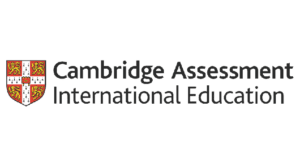
Homeschooling in Ethiopia
In Ethiopia, homeschooling is not officially regulated, but it is gaining traction among families seeking more control over their children’s education. The formal education system in Ethiopia faces challenges such as overcrowding, limited resources, and varying quality of instruction, which drives some parents to consider homeschooling as a viable alternative.
This guide provides essential information for parents living in or planning to move to Ethiopia who are considering homeschooling as an educational option for their children.
Understanding Homeschooling in Ethiopia
In Ethiopia, formal schooling is the standard, and there are no specific national regulations for homeschooling. However, parents can educate their children at home as long as they cover essential subjects such as mathematics, language arts, science, and social studies. Many Ethiopian families use online resources or international curricula, such as the Cambridge International Curriculum or the American Homeschool Curriculum.
For families in remote areas or those facing barriers to accessing traditional schools, homeschooling can provide a valuable alternative and allow integration of local cultural and linguistic knowledge.
Lower School
| AGE | INTERNATIONAL PROGRAM | NATIONAL PROGRAM |
Upper School
| AGE | INTERNATIONAL PROGRAM | NATIONAL PROGRAM |
Why Homeschooling?
Customized Learning: Homeschooling allows parents to tailor the curriculum to their child’s specific needs, enabling personalized instruction and one-on-one attention that may not be available in traditional classrooms.
Flexibility: It offers families the flexibility to adjust the learning schedule around travel, work, or other commitments, making it easier to balance educational and personal responsibilities.
Special Needs: Homeschooling can be especially beneficial for children with special needs who may require specialized support that is not available in conventional schools.
Safety and Stability: In regions facing instability or conflict, homeschooling provides a stable and secure learning environment for children.
Getting Started with Homeschooling
Planning the Homeschooling Journey
- Choosing a Curriculum: Parents can select from international homeschooling programs such as Cambridge International, International Baccalaureate, or American curricula, which provide structured and globally recognized education.
- Materials and Resources: Essential tools for homeschooling include internet access, a computer, and relevant textbooks. Parents can utilize online platforms such as Khan Academy, EdX, or Coursera to supplement their teaching.
- Legal Considerations: Although homeschooling is not officially regulated in Ethiopia, parents should ensure that their children meet international educational standards. Some families choose to have their children take standardized tests from accredited international programs to track their progress.
Challenges and Solutions
- Limited Access to Educational Resources: In some areas, access to technology and educational materials can be limited. Parents can address this by joining local homeschooling support groups or connecting with international organizations that provide resources.
- Social Interaction: Ensuring that homeschooled children receive adequate social interaction is crucial. Parents can involve their children in community activities, local sports clubs, or religious groups to help them develop social skills.
- Certification: Since Ethiopia does not formally recognize homeschooling, parents aiming to certify their children’s education for higher education may need to register them for exams through accredited online schools or international programs.
Further Support for Homeschooling
For parents seeking guidance and support with homeschooling in Ethiopia, Caplora International School offers online programs that cater to students globally, providing a comprehensive and internationally recognized education. They assist in setting up homeschooling plans and navigating any challenges that may arise.
For more information, visit Caplora International School or contact them at hello@caplora.co.ke for personalized advice.

